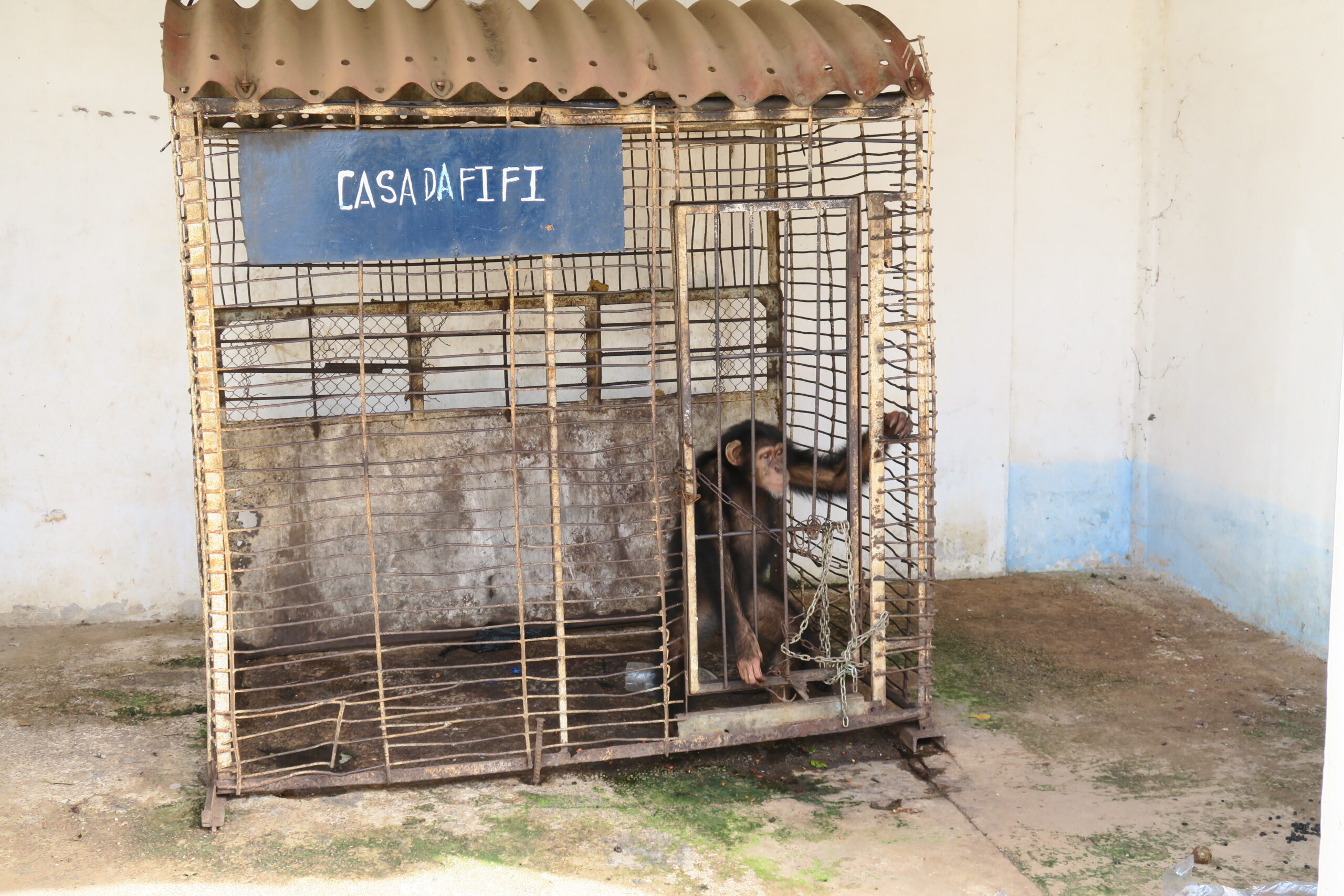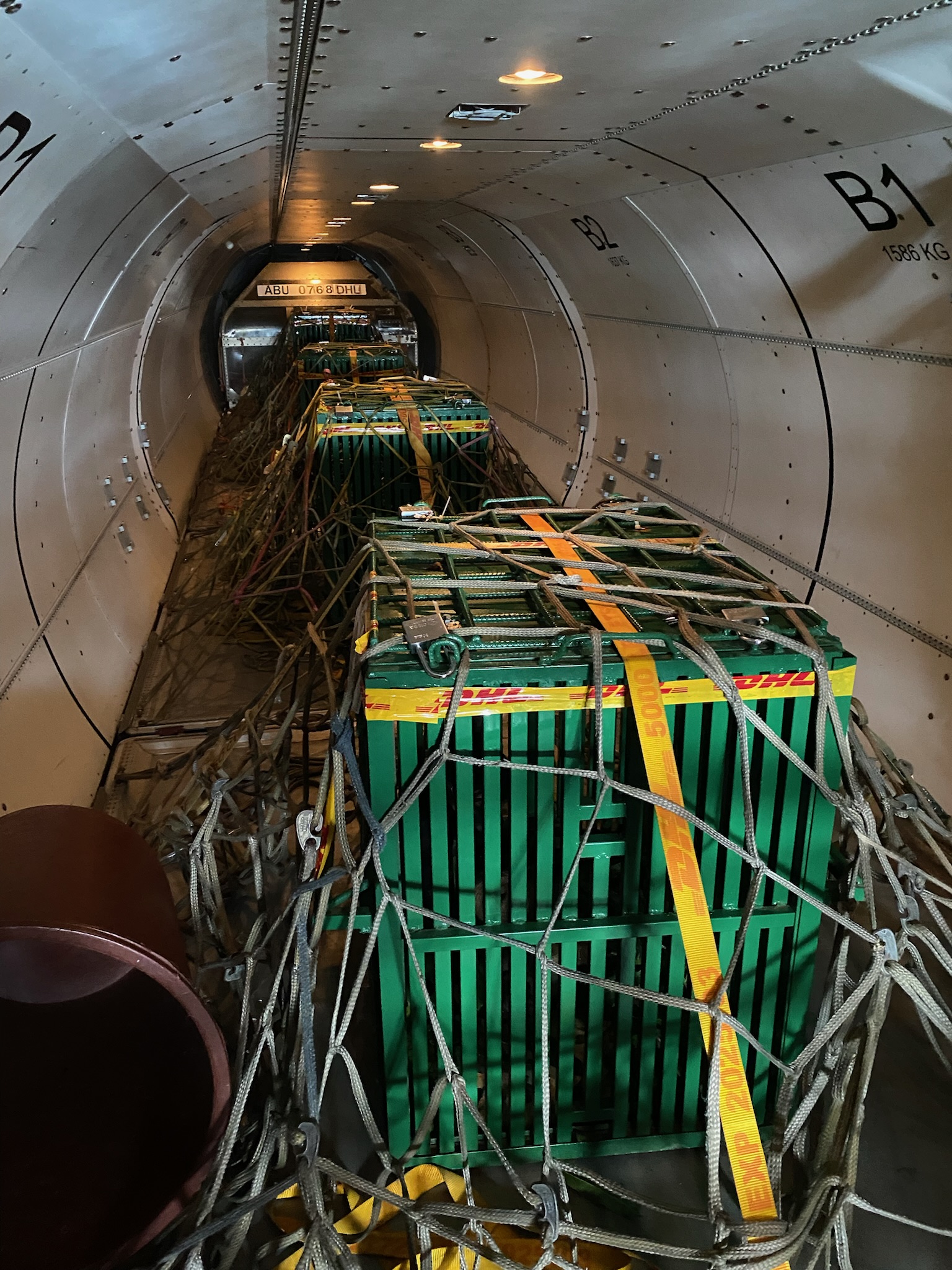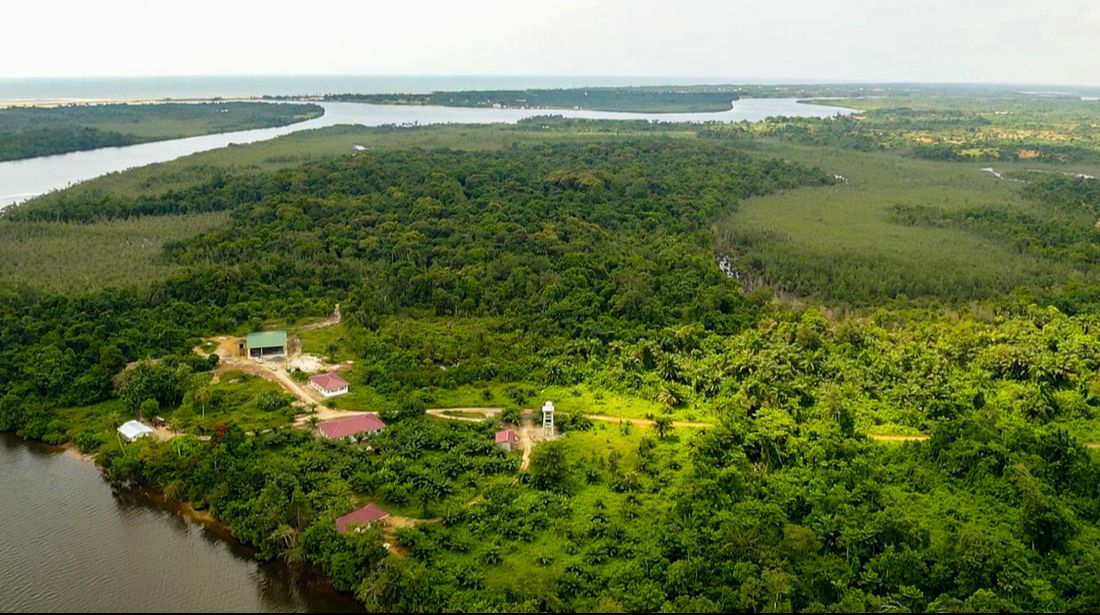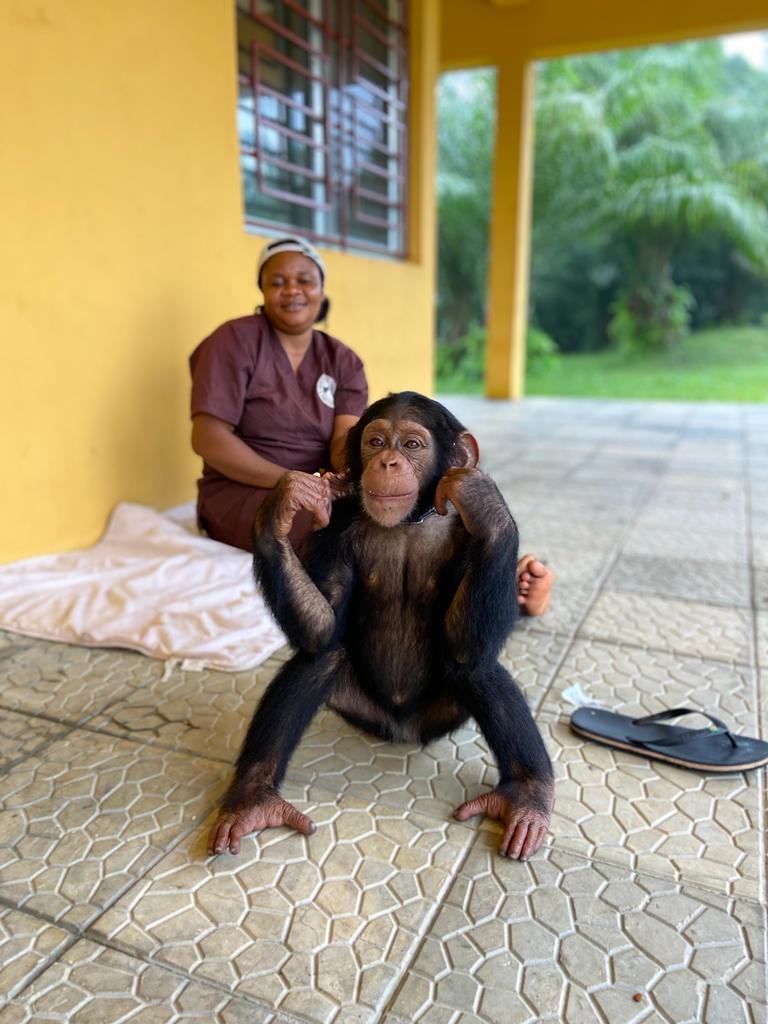Four Chimps Find Sanctuary Thanks to Perseverance!
PASA and our partners worked for four years to help these chimps get a second chance at life – just in time for World Chimpanzee Day!
By Jean Fleming
It’s World Chimpanzee Day and we can’t think of a better way to celebrate than to share some amazing news! Thanks to your generosity, Fifi, Simão, Tzé and Tita, chimps who’ve been living in terrible conditions for years, are finally in their new sanctuary home.
The four chimpanzees were successfully transferred from Guinea-Bissau to the Liberia Chimpanzee Rescue and Protection (LCRP), a chimpanzee sanctuary in Liberia. In a complex international operation, PASA and our partners had been working on this transfer since first learning about the chimps in 2018. Through the global pandemic, and even a coup attempt, the team did not give up hope that these endangered animals could find a new life in a sanctuary. The four chimpanzees – Simão, Fifi, Tzé, and Tita – range in age from just over two to 12 years old.
PASA first learned about Simão in 2018, when Lara Espírito Santo, a Portuguese woman working in Guinea-Bissau came across a little chimp living in a cage. It was Simão. She was concerned about his welfare and contacted PASA to explore bringing him to a sanctuary. The team here got to work and soon learned of other chimpanzees in need.
“We were incredibly moved by Simão’s story,” said Kaitlyn Bock, our Africa Operations Manager. Kaitlyn spearheaded the operation for PASA. “When we learned about the other chimps living in equally harsh conditions, we knew we had to help. After four years of hard work, to see them safely transferred at last, well, it’s a dream come true.”
Guinea-Bissau does not have a wildlife sanctuary, and there are no laws that prohibit private possession of chimps and other wildlife. This made it clear that these chimps would need to be transferred to a sanctuary in another country, adding complexity and cost to the operation. PASA leveraged its members’ expertise in transfers and veterinary care to formulate a plan.
Rebeca Atencia is a wildlife veterinarian and Executive Director of the Jane Goodall Institute in the Republic of Congo, where she manages Tchimpounga Chimpanzee Rehabilitation Centre, a PASA member sanctuary. She visited the chimps in 2021 to assess their health and ability to travel, and recalls meeting Simão for the first time.
“Simão was kept in a cage that had no floor and was made of metal fencing,” she remembers. “He had to spend all day on bars of iron. The roof covered only one side, so when it rained, water entered everywhere. He did not have access to water or food, so if they forgot to give him water, he would be thirsty all day. Worst of all is that it was in the middle of a street where many trucks and cars passed by. In front of it there was a sawmill, so there was constantly a hellish noise.”
The other chimps were kept in similar conditions. Fifi was in a small metal cage outside a hotel in Bissau, where she lived isolated from others for over 10 years. Tzé and Tita were each chained to trees. And sadly, the fifth chimp, Julio, died just months shy of the transfer, a heartbreaking reminder that not every animal gets a second chance.
Jim and Jenny Desmond, founders of the Liberia Chimpanzee Rescue and Protection sanctuary (LCRP), came on board as the right sanctuary to provide these special chimps a new home.
“We are so fortunate to bring Fifi, Tzé, Simão and Tita into the LCRP family, thanks to the amazing work of our partners and supporters around the world,” said Jenny Desmond. “We coordinated with the officials here in Liberia to arrange the necessary import permits, and helped secure free transport from DHL while our partners did the same in Guinea-Bissau. We’re just so grateful that the chimps have arrived and that they’re healthy. We are letting them settle in a bit. Then we can start the work of rehabilitating them after years of isolation and poor treatment. The most rewarding part of rescuing chimpanzees in need is getting to see each person emerge from their trauma, start to play and laugh, form new bonds, and transform into their true selves.”
The operation has required extraordinary perseverance. It hit a standstill when COVID-19 hit, as the global pandemic shuttered government offices. And earlier in 2022, a coup attempt in Guinea Bissau shut things down again. But the team did not give up. Sofia de Oliveira Mendes represented PASA in Guinea-Bissau, working with the government there to maintain momentum, and coordinating with the team.
“It has been a long journey,” she said. “But I’m grateful to see this day, when these beautiful animals can find a new life.”
This transfer required a coalition to succeed. This included groundbreaking collaboration between governmental agencies in both countries: the Directorate General for Forests and Fauna (DGFF) and Institute of Biodiversity and Protected Areas (IBAP) in Guinea-Bissau, and the Forestry Development Authority (FDA) in Liberia. Also integral to the success of the operation were LCRP, the Jane Goodall Institute, and DHL, which generously provided air transport free of charge. Many individuals offered invaluable expertise, including Lica Reisfeld who translated documents into Portuguese in support of the operation. And thanks to PASA’s global network of supporters, these chimps had advocates all around the world.
The operation underscores the complexity and cost of protecting endangered wildlife. Increasingly, this requires transnational collaboration, as wildlife habitat disappears due to development and climate change. The role of sanctuaries has become central in protecting endangered species and brokering international agreements.
“PASA members bring decades of expertise with transfers like this one,” said Kelly O’Meara, executive director of PASA. “The power of our alliance is that we can now leverage that knowledge to transform outcomes for endangered animals anywhere on the continent.”
When asked why it matters to get four chimpanzees to a sanctuary, O’Meara reflected on the potential loss of the species.
“Set aside the fact that life in a cage or chained to a tree is no life at all for a chimp,” she said. “But the reality is that within 30 years, chimpanzees could all be extinct. Their habitat is declining, they are hunted for trophy parts and as bushmeat. Frankly, the odds are against them. That’s why we say that in the race against extinction, every animal counts. These four chimps are a sign that there’s hope, that we can do right by them – and by the countless other chimps in need. On World Chimpanzee Day, that’s worth celebrating.”
If you’d like to support chimpanzee rescues like this one, you can make a donation to our Chimp Rescue Fund. Every dollar helps us save endangered chimps living in cramped, inhumane conditions.

Fifi was kept in this cage, all alone, outside a guesthouse in a noisy city. Now she’ll get to play with new friends in a spacious enclosure.

The chimps are loaded and ready for their flight, donated by DHL. The team made sure the chimps could see each other on the plane.
Photo courtesy of DHL/LCRP

The chimps’ new home is spacious and lush.
Photo courtesy of LCRP.

Now the healing can begin.
Photo courtesy of LCRP.
